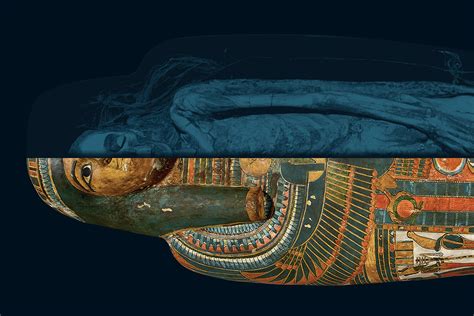Are you fascinated by the mysteries of ancient Egypt? Do you dream of uncovering the secrets hidden within the pyramids and ancient tombs? If so, a career in Egyptology may be the perfect path for you. In this blog post, we will explore the captivating world of Egyptology and the opportunities it offers for those passionate about uncovering the secrets of the ancient civilization. From the education and training required to become an Egyptologist, to the specialized fields within the discipline, we will delve into the various aspects of pursuing a career in this fascinating field. Join us as we discuss the thrill of excavations and fieldwork, the importance of preserving cultural heritage, and the diverse career opportunities available for Egyptologists. Whether you are an aspiring archaeologist or simply have a deep interest in ancient history, unlocking the mysteries of mummification and deciphering hieroglyphics could be the career of your dreams.
Table of Contents
The Fascinating World of Egyptology
Exploring the world of Egyptology is a journey into the ancient civilization of Egypt, with its rich history and remarkable achievements that continue to fascinate people around the globe. This field of study encompasses a wide range of disciplines, including archaeology, anthropology, history, linguistics, and art history, all of which converge to provide a comprehensive understanding of ancient Egyptian culture and society.
Education and training for Egyptologists are crucial in order to acquire the necessary knowledge and skills to interpret and analyze ancient artifacts, decipher hieroglyphics, and conduct excavations and fieldwork. Many universities and research institutes offer specialized programs and courses in Egyptology, providing students with the opportunity to learn from leading experts in the field and gain hands-on experience in working with ancient materials and archaeological sites.
Aspiring Egyptologists are often drawn to the allure of unlocking the secrets of mummification, studying the religious beliefs and funerary practices of the ancient Egyptians, and piecing together the fragments of history through meticulous research and scholarship. The field of Egyptology offers a myriad of specializations, from the study of pharaonic dynasties and royal tombs to examining the everyday lives of ordinary citizens through the study of artifacts and inscriptions.
Research and scholarship in Egyptology continue to expand our knowledge and understanding of ancient Egypt, shedding light on its contributions to the development of human civilization and preserving its cultural heritage for future generations. The fascinating world of Egyptology presents a multitude of career opportunities for those passionate about unraveling the mysteries of the past and promoting cultural heritage preservation through the study and exploration of this ancient and enigmatic civilization.
Education and Training for Egyptologists
Education and Training for Egyptologists is a crucial aspect of pursuing a career in this field. In order to become a successful Egyptologist, individuals must undergo extensive training and education to acquire the necessary knowledge and skills. This typically involves obtaining a bachelor’s degree in archaeology, anthropology, or a related field, followed by a master’s or doctoral degree specializing in Egyptian history, language, and culture.
During their academic pursuits, aspiring Egyptologists often engage in fieldwork and excavations to gain hands-on experience in the field. This practical training is essential for developing a deeper understanding of ancient Egyptian archaeology and honing research skills. Additionally, learning to read and interpret hieroglyphics is a fundamental part of the training process, as these ancient scripts hold valuable insights into the civilization’s history and traditions.
Furthermore, specialized courses in mummification, preservation of cultural heritage, and the latest archaeological techniques are also incorporated into the training curriculum. This comprehensive education equips Egyptologists with the expertise needed to contribute to the study and preservation of ancient Egyptian artifacts and sites.
Ultimately, the rigorous education and training for Egyptologists prepare individuals for a diverse range of career opportunities, whether in academia, museum curation, cultural heritage preservation, or research and scholarship within the field of Egyptology.
Exploring Ancient Egyptian Archaeology
Ancient Egyptian archaeology is a captivating field that allows us to delve into the rich history and culture of one of the world’s most fascinating civilizations. Unearthing the remnants of ancient Egypt’s past through archaeological digs and research enables us to gain valuable insights into the daily lives, customs, and beliefs of its people.
Exploring the ancient Egyptian artifacts, tombs, and ruins provides a window into the society’s advancements in areas such as architecture, engineering, art, and religion. Each discovery contributes to the puzzle of understanding this ancient civilization and allows us to piece together the complexities of their daily existence.
By studying the tools, pottery, and other artifacts left behind, archaeologists can determine the daily activities, social structures, and trade interactions of the ancient Egyptians. The intricate details uncovered through excavation work shed light on the customs, traditions, and technological advancements of this ancient civilization.
Furthermore, the study of ancient Egyptian archaeology allows us to gain a deeper understanding of their religious beliefs, burial practices, and the significance of rituals such as mummification. Uncovering the mysteries of ancient Egyptian burial sites and deciphering hieroglyphic inscriptions enhances our comprehension of their spiritual and ceremonial practices.
Unlocking the Secrets of Hieroglyphics
Hieroglyphics, the ancient Egyptian form of writing, have long been a source of fascination and mystery for scholars and the public alike. The intricate symbols and pictograms that make up this writing system have puzzled experts for centuries, and it is only in recent years that significant progress has been made in understanding and deciphering them.
One of the key breakthroughs in unlocking the secrets of hieroglyphics came with the discovery of the Rosetta Stone in 1799. This stone, inscribed with a decree issued at Memphis in 196 BC, provided the key to understanding hieroglyphics by containing the same text in three scripts: Greek, Demotic, and Hieroglyphic. This allowed scholars to use the Greek text as a guide to decipher the hieroglyphic symbols.
Today, with the help of advanced tools such as multispectral imaging and computer software, researchers are able to study and decode hieroglyphic inscriptions with a level of precision that was once unimaginable. This has led to a much deeper understanding of ancient Egyptian history, religious beliefs, and daily life.
As we continue to unlock the secrets of hieroglyphics, we gain invaluable insights into the world of ancient Egypt and the people who lived there. This ongoing process of discovery and interpretation is essential for preserving and understanding the rich cultural heritage of this ancient civilization.
Unveiling the Mysteries of Mummification
Unveiling the mysteries of mummification is a fascinating journey into the ancient Egyptian practices of preserving the dead. The process of mummification was a complex and intricate procedure that was central to the religious beliefs and traditions of ancient Egypt. From the removal of the internal organs to the careful wrapping of the body, mummification was a highly ritualized and significant aspect of Egyptian culture.
One of the key elements of mummification was the use of natron, a naturally occurring salt that was used to dry out the body and prevent decay. The ancient Egyptians believed that the preservation of the physical body was essential for the continued existence of the soul in the afterlife, and mummification was an important part of ensuring the deceased’s successful journey to the next world.
Modern archaeologists and researchers have made significant advances in uncovering the secrets of mummification through the study of mummies and the tombs in which they were buried. By using techniques such as CT scanning and chemical analysis, scientists have been able to gain a deeper understanding of the mummification process and the materials used in the embalming and wrapping of the body.
The study of mummification provides valuable insights into ancient Egyptian beliefs and practices, shedding light on their religious and cultural traditions. By unveiling the mysteries of mummification, we can gain a greater appreciation for the complexities of ancient Egyptian civilization and the significance of death and the afterlife in their society.
Excavations and Fieldwork in Egyptology
Excavations and fieldwork in Egyptology are crucial aspects of uncovering the mysteries of ancient Egypt. Through meticulous excavation processes, Egyptologists are able to unearth valuable artifacts, structures, and even human remains that provide insight into the daily lives and practices of the ancient Egyptians. This hands-on approach to research allows for a deeper understanding of the cultural, religious, and socio-political aspects of ancient Egypt.
Archaeologists and Egyptologists utilize a variety of tools and techniques to carry out excavations and fieldwork. From ground-penetrating radar to advanced mapping technology, these experts employ cutting-edge methods to uncover and document ancient sites and artifacts. The careful excavation of tombs, temples, and settlements allows for the preservation and interpretation of invaluable historical evidence.
Fieldwork in Egyptology often involves collaboration with local communities and government authorities to ensure the protection of archaeological sites. This partnership aims to promote responsible excavation practices and the preservation of Egypt’s rich cultural heritage. By working closely with local stakeholders, archaeologists and Egyptologists can develop sustainable strategies for the ongoing study and conservation of ancient sites.
Excavations and fieldwork in Egyptology not only contribute to the academic understanding of ancient civilization, but also play a critical role in promoting cultural awareness and heritage preservation. The discoveries made through these efforts continue to captivate and inspire people around the world, shedding light on the fascinating history of Egypt and its enduring legacy.
Specializations within the Field of Egyptology
When it comes to the field of Egyptology, there are numerous specializations that individuals can pursue as they embark on their academic and professional journey. One of the most common specializations is archaeology, which focuses on the excavation and study of ancient Egyptian artifacts and structures. Archaeologists in this field may work in a variety of settings, from conducting fieldwork at excavation sites to analyzing artifacts in a laboratory setting.
Another important specialization within Egyptology is linguistics. This specialization involves the study of ancient Egyptian languages, including the famous hieroglyphics that have fascinated scholars and enthusiasts for centuries. Linguists in this field may work on deciphering ancient texts, translating inscriptions, and contributing to our understanding of the written record of ancient Egypt.
Art history is another common specialization within the field of Egyptology. This area of study focuses on the analysis and interpretation of ancient Egyptian art and its cultural significance. Art historians in this field may specialize in specific periods or styles of Egyptian art, and they often contribute to our understanding of the beliefs, values, and traditions of ancient Egyptian society.
Finally, epigraphy is a specialized field within Egyptology that focuses on the study of inscriptions and writing systems in ancient Egypt. Epigraphers play a crucial role in deciphering and interpreting the numerous inscriptions found on ancient Egyptian monuments, tombs, and artifacts, contributing to our understanding of the religious, political, and social practices of the ancient Egyptians.
Research and Scholarship in Egyptology
Research and Scholarship in Egyptology plays a crucial role in advancing our understanding of ancient Egyptian civilization. Through rigorous academic study and analysis, scholars in this field are able to uncover new insights into the history, culture, and society of ancient Egypt. This research is essential for preserving the cultural heritage of Egypt and ensuring that future generations have access to accurate and comprehensive knowledge about this fascinating civilization.
One of the key aspects of research in Egyptology is the exploration of primary sources, such as artifacts, texts, and archaeological sites. By carefully examining and interpreting these materials, scholars are able to piece together the puzzle of ancient Egyptian life and society. This involves a multidisciplinary approach, combining expertise in archaeology, linguistics, history, and anthropology to provide a comprehensive and accurate understanding of this ancient civilization.
Scholarship in Egyptology also involves the dissemination of knowledge through publications, conferences, and academic collaborations. By sharing their findings with the wider academic community, researchers in this field are able to contribute to the broader understanding of Egyptian civilization and its significance in world history. This scholarly exchange of ideas and findings is essential for the advancement of the field and for ensuring the accuracy and integrity of Egyptological research.
Ultimately, research and scholarship in Egyptology are vital for preserving the cultural heritage of ancient Egypt and for continuing to uncover new insights into this remarkable civilization. With ongoing research and academic collaboration, scholars in this field are able to contribute to the global understanding of Egyptian history, culture, and society, ensuring that the legacy of this ancient civilization is accurately and comprehensively preserved for future generations.
Promoting Cultural Heritage Preservation
Promoting cultural heritage preservation is essential in safeguarding the rich history and traditions of ancient civilizations, including Egypt. The cultural heritage of Egypt is a source of pride and fascination for people around the world, and it is crucial to ensure that it is protected and preserved for future generations to appreciate and learn from.
One of the most effective ways to promote cultural heritage preservation is through education and awareness. By educating people about the importance of preserving cultural heritage, we can inspire them to take action and support initiatives aimed at protecting ancient sites, artifacts, and traditions.
Another important aspect of promoting cultural heritage preservation is advocating for policies and regulations that prioritize the protection of ancient sites and artifacts. This may involve working with government authorities, participating in advocacy campaigns, and collaborating with international organizations dedicated to cultural heritage preservation.
Furthermore, promoting cultural heritage preservation also involves engaging with local communities and empowering them to take an active role in safeguarding their own heritage. By involving local stakeholders in preservation efforts, we can ensure that cultural heritage is respected and protected at a grassroots level.
Career Opportunities for Egyptologists
For those who have a passion for ancient history, art, and culture, pursuing a career in Egyptology can be an incredibly rewarding path. As an Egyptologist, one can explore a wide range of career opportunities in both the academic and professional realms.
Many Egyptologists find employment in universities and research institutions, where they can conduct extensive studies, teach courses, and contribute to the field through scholarly publications and presentations. The academic route allows for in-depth research and the opportunity to train the next generation of Egyptologists.
On the other hand, there are also career opportunities for Egyptologists in museums, cultural institutions, and heritage organizations. This can involve roles in curating, conservation, and exhibition design, where Egyptologists work to preserve and promote the cultural heritage of ancient Egypt.
Furthermore, with the growing interest in Egyptian archaeology, there are opportunities for Egyptologists to work in the field, participating in excavations, surveys, and fieldwork projects. This hands-on approach allows Egyptologists to directly engage with the ancient artifacts and monuments, contributing to our understanding of ancient Egyptian civilization.





